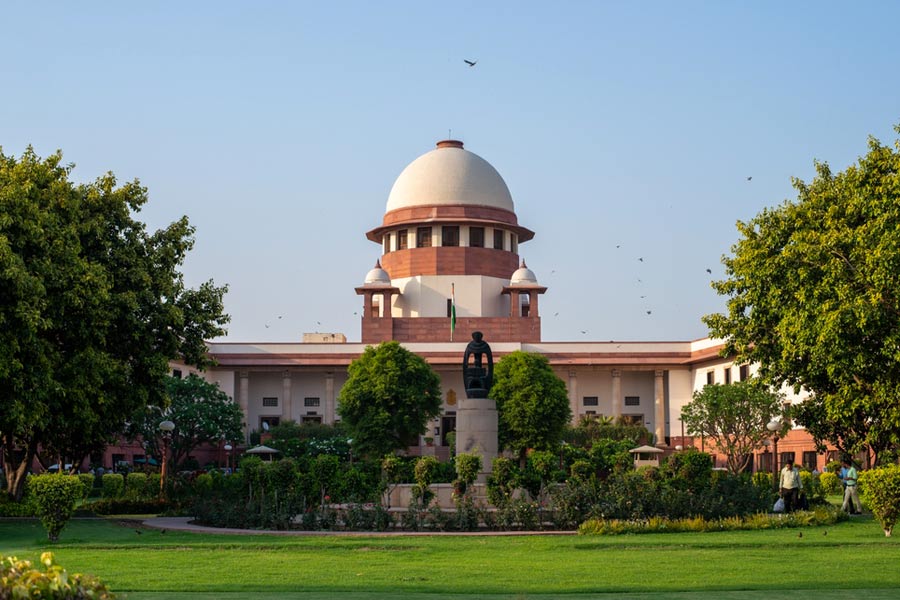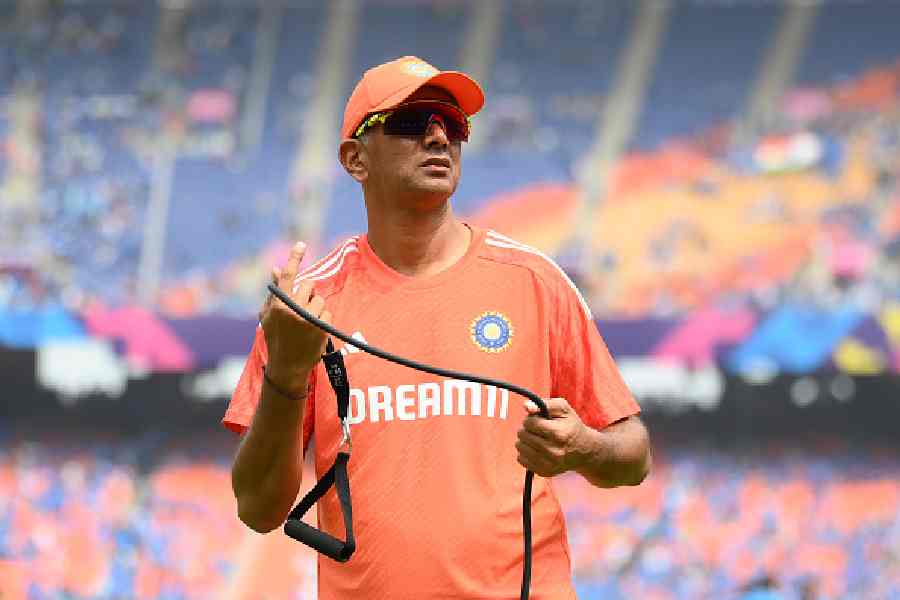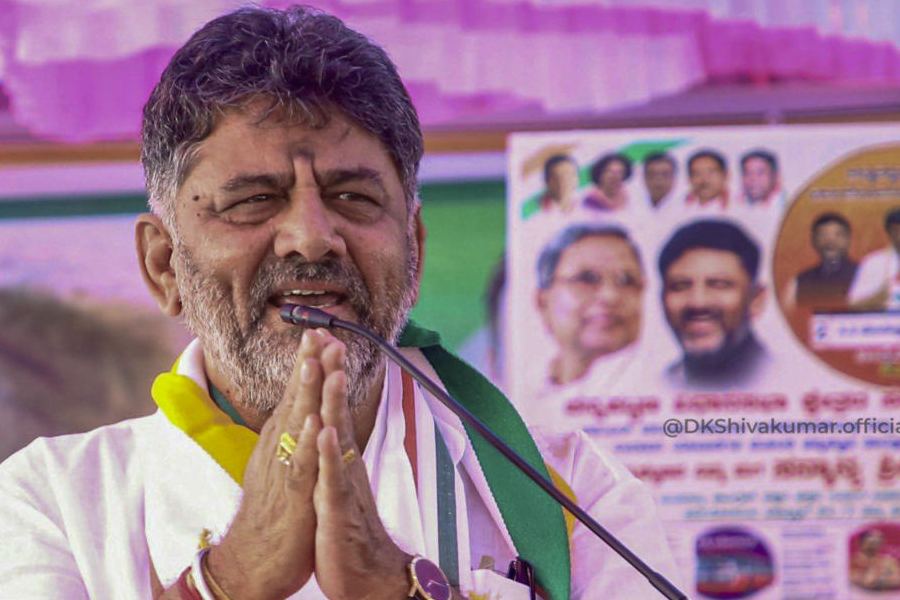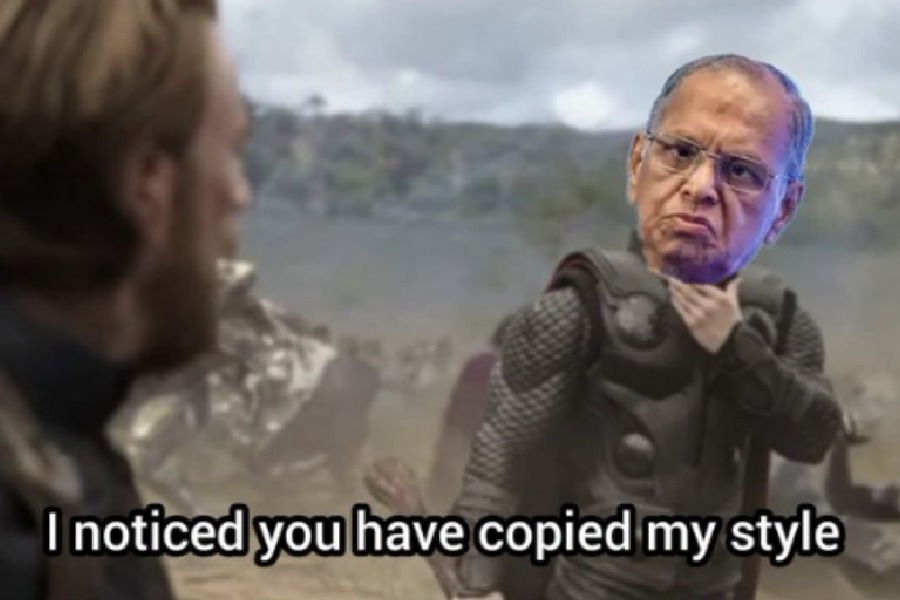The Supreme Court has ruled that it is not mandatory for the Enforcement Directorate (ED) to furnish a written copy of the “grounds of arrest” to an accused under the PMLA (Prevention of Money Laundering Act), 2002 as it is sufficient compliance of the law even if the person is “orally” informed about the reasons for arrest.
The ruling is expected to raise the hackles of civil liberty and rights activists who feel that the 2002 act is being increasingly used by the government against critics of the dispensation.
The apex court passed the verdict while dismissing the appeal of Ram Kishor Arora, founder of real estate company M/s Supertech Limited, challenging a September 22, 2023, judgment of Delhi High Court that had dismissed his plea against his arrest under the PMLA on July 27. Arora had submitted that his arrest was illegal and in violation of his fundamental rights as a copy of the grounds of arrest as required under Section 19 of the act was not furnished to him.
The petitioner, through senior advocate Abhishek Manu Singhvi, had cited two recent judgments of the Supreme Court passed this year by separate two-judge division benches in the Senthil Balaji vs ED and Pankaj Bansal vs ED cases.
However, the ED, represented by additional solicitor-general S.V. Raju, argued that the recent judgment, particularly in the Pankaj Bansal case, was wrongly decided by the two-judge bench as an earlier three-judge bench in the Vijay Madanlal Choudhary case last year had held that there was no mandatory requirement to furnish the accused copies of the grounds of arrest.
A two-judge bench cannot overrule a three-judge bench. In case it differs with a larger bench ruling, it can only refer the matter to the Chief Justice to send the dispute to a much larger bench for an authoritative pronouncement.
According to Section 19 of the PMLA, “Power to arrest — (1) If the Director, Deputy Director, Assistant Director or any other officer authorised in this behalf by the Central Government by general or special order, has on the basis of material in his possession, reason to believe (the reason for such belief to be recorded in writing) that any person has been guilty of an offence punishable under this Act, he may arrest such person and shall, as soon as may be, inform him of the grounds for such arrest…”
A bench of Justices Bela M. Trivedi and Satish Chandra Sharma in the latest judgment delivered on December 15, however, cited the three-judge apex court ruling in the Vijay Madanlal Choudhary case wherein it was observed: “We have no hesitation in upholding the validity of Section 19 of the 2002 Act. We reject the grounds pressed into service to declare Section 19 of the 2002 Act as unconstitutional. On the other hand, we hold that such a provision has reasonable nexus with the purposes and objects sought to be achieved by the 2002 Act of prevention of money-laundering and confiscation of proceeds of crime involved in money-laundering, including to prosecute persons involved in the process or activity connected with the proceeds of crime so as to ensure that the proceeds of crime are not dealt with in any manner which may result in frustrating any proceedings relating to confiscation thereof.”
In the said judgment the three-judge bench had further ruled that “…supply of ECIR (Enforcement Case Information Report) in every case to persons concerned is not mandatory…”
Writing the present judgment, Justice Trivedi observed: “In Vijay Madanlal Choudhary (supra), it has been categorically held that so long as the person has been informed about the grounds of his arrest, that is sufficient compliance of mandate of Article 22(1) of the Constitution. It is also observed that the arrested person before being produced before the Special Court within twenty-four hours or for those purposes of remand on each occasion, the Court is free to look into the relevant records made available by the Authority about the involvement of the arrested person in the offence of money-laundering.
“Therefore, in our opinion the person asserted, if he is informed or made aware orally about the grounds of arrest at the time of his arrest and is furnished a written communication about the grounds of arrest as soon as may be i.e as early as possible and within reasonably convenient and requisite time of twenty-four hours of his arrest, that would be sufficient compliance of not only Section 19 of PMLA but also of Article 22(1) (a person’s right to be informed of the grounds of arrest) of the Constitution of India.”











